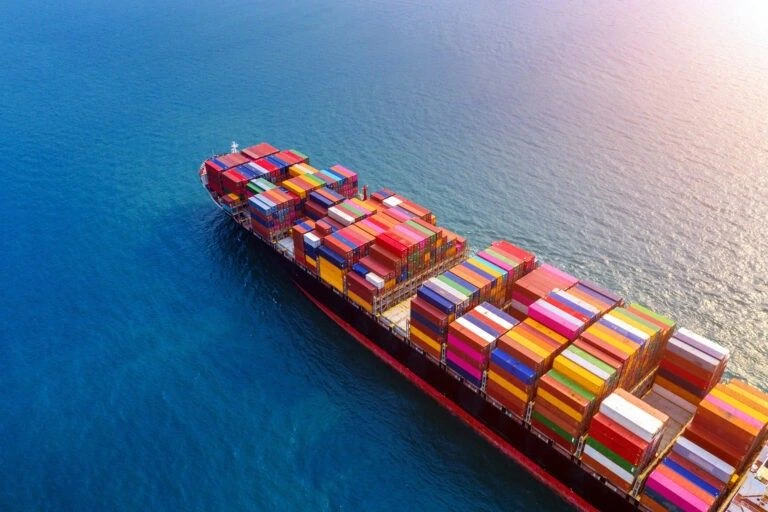Best Logistics Management Course in Kochi | Career Campus

Career Campus offers the best Logistics Management course in Kochi with enriched, industry-focused modules. The program covers emerging trends such as AI in supply chains and sustainable logistics practices, building on Career Campus’s strong academic foundation in Kochi. This expanded program includes hands-on internships and industry visits, preparing students for high-demand roles amid India’s logistics boom valued at over $200 billion. Explosive Job Scope for Logistics Professionals in Kochi Kerala’s logistics thrives on Vallarpadam terminal, 3PL expansion, and urban warehousing in Ernakulam. Demand spans e-commerce, exports, and manufacturing, creating 100+ openings for roles such as executives and coordinators in Kochi firms. 1. High-Paying Career Roles The Best Logistics Management Course in Kochi unlocks diverse positions: Learn More: Skills Needed for Logistics Jobs That Every Student Must Learn 2. Salary Breakdown Competitive pay reflects sector growth: Role Average Annual Salary (₹ Lakhs) Kochi/Kerala Specific Entry-Level (Coordinator) 2.5-5 ₹2.8-4.5 Mid-Level (Analyst/Manager) 5-12 ₹5-7 monthly avg ₹2.5-2.7 Senior (Director) 20-50 Up to ₹16.6 avg for managers Why Career Campus for Logistics Success Hands-on training, including industry visits and software, ensures job readiness for these roles. With 100% placement assistance, graduates tap into Kochi’s 20%+ growth, securing quick hikes and job stability. 🌐 careercampusedu.com | 📞 +91 920713 8888 Why Choose Career Campus? Career Campus excels with its industry-aligned curriculum that covers procurement, warehousing, and supply chain analytics, drawing from real-world demands in Kochi’s port-driven economy. The institute provides hands-on training through simulations and internships with local firms, fostering skills for roles like Logistics Manager or Supply Chain Analyst. Faculty from top logistics firms deliver insights, making it superior to generic programs elsewhere in Ernakulam. 1. Comprehensive Syllabus Key modules in the Best Logistics Management Course in Kochi include: 2. Course Fees and Duration Affordable entry to the Best Logistics Management Course in Kochi: 3. Job Roles and Salary Expectations The Best Logistics Management Course in Kochi unlocks high-demand positions: 4. Industry Scope and Placements India’s logistics market hits $350 billion by 2026, driven by e-commerce and exports—prime for Kochi grads. Career Campus boasts ties to FedEx, DHL, and local ports, ensuring internships and jobs with rising salaries averaging 15-20% hikes yearly
Skills Needed for Logistics Jobs That Every Student Must Learn

Logistics jobs require a mix of skills needed for logistics jobs including technical expertise, practical experience, and soft skills, to succeed and get hired quickly. Students aiming for logistics careers should focus on developing key competencies like data analysis, communication, and technological proficiency. Operational know-how also helps meet industry demands in 2025. Key Technical Skills Needed for Logistics Jobs 1. Data Analysis: Effective decision-making relies heavily on interpreting data, such as demand forecasting and performance metrics. Being comfortable with spreadsheets and logistics software improves operational accuracy. 2. Supply Chain and Inventory Management: Understanding the flow of goods, inventory control, and supply chain processes is critical for optimising logistics functions. Warehouse Management Systems (WMS) enable just-in-time strategies and procurement coordination. 3. Material Handling and Equipment Operation: Experience with forklifts, pallet jacks, and other material handling equipment is highly valued, including certifications like forklift operation. Skills extend to cherry pickers and side loaders for efficient warehouse picking and packing. 4. Technological Proficiency: Familiarity with logistics software like ERP systems and Freight+ tools is essential. The industry increasingly relies on automation and data-driven operations. Proficiency in Transportation Management Systems (TMS) supports route optimisation and carrier selection. IoT enables real-time tracking for seamless supply chain integration. 5. AI and Machine Learning Basics: Knowledge of AI for demand forecasting, route optimisation, and predictive maintenance reduces errors. This enhances efficiency in modern supply chains. 6. Blockchain for Traceability: Understanding blockchain improves supply chain transparency, fraud prevention, and secure tracking of goods across global networks. 7. Cloud Computing and IoT Integration: Skills in cloud platforms and IoT devices enable real-time warehouse automation, inventory visibility, and predictive analytics Soft Skills to Excel in Logistics Careers 1. Communication: Clear and consistent communication plays a vital role in coordinating teams, suppliers, and customers to maintain smooth operations. Effective verbal and written skills prevent misunderstandings in delivery timelines and stakeholder updates. 2. Problem-Solving: Quick and effective issue resolution is crucial for managing unexpected disruptions and minimising supply chain losses. Critical thinking identifies root causes and implements proactive solutions under tight deadlines. 3. Planning and Organisation: Logistics jobs demand precision in scheduling, workflow management, and contingency planning to meet tight deadlines and handle fluctuations. Strong time management prioritises tasks and maintains accurate records for productivity. 4. Adaptability and Resilience: The ability to remain calm under pressure and adjust to changes supports continuous operation despite challenges. Flexibility handles delays, technical issues, and global shifts with a positive mindset. 5. Teamwork and Collaboration: Working effectively with diverse teams ensures seamless coordination across warehouses, transport, and procurement for optimal supply chain flow. 6. Attention to Detail: Spotting minor details in weights, dimensions, and timelines avoids errors, delays, and customer issues in high-stakes logistics environments. 7. Leadership and Project Management: Guiding teams through complex projects, such as warehouse relocations or inventory audits, drives efficiency and operational success. Certifications and Practical Experience for Logistics Jobs Obtaining certifications such as forklift operation and Workplace Hazardous Material Information System (WHMIS) enhances employability. Additional credentials like CLTD, CPIM, and TDG compliance demonstrate regulatory knowledge and safety readiness. Hands-on experience with warehouse operations, inventory management, and transportation logistics helps in standing out to employers. Internships provide real-world exposure to equipment, software, and workflows for immediate contributions.
Best Logistics Course for Students: Fees, Jobs & Scope

The best logistics course for students in 2025 is a gateway to a dynamic and high-growth career in supply chain management, transportation, warehousing, and global trade. With India’s logistics sector expanding rapidly due to e-commerce, manufacturing, and international trade, logistics professionals are in high demand. Choosing the right course based on fees, duration, eligibility, and career scope can set students on a path to success in this ever-evolving industry. Why Pursue the Top Logistics Course? Logistics is the backbone of modern business, ensuring goods move efficiently from manufacturers to consumers. The best logistics courses equip students with practical skills in supply chain management, inventory control, transportation, warehousing, and digital tools like SAP. These programs are designed to meet industry needs and offer strong placement support, making them ideal for students seeking a rewarding career in logistics and supply chain management. Types of Best Logistics Courses in India India offers the best logistics courses to suit different career goals and academic backgrounds. These include: Logistics Course Fees, Duration, and Eligibility Overview The table below summarises the key details of the best logistics courses in India: Course Type Duration Fees (INR) Eligibility Criteria Certificate Course 3–6 months ₹30,000 10+2 or equivalent Diploma Course 6–12 months Graduation from a recognised university 10+2 or equivalent PG Diploma / PGDM 1–2 years ₹1,00,000 – ₹2,50,000 Graduation from a recognised university Degree Course 2–4 years ₹2,00,000 – ₹5,00,000 Graduation (for PG) / 10+2 (for UG) Online Course Flexible ₹20,000 – ₹1,00,000 Graduation from recognised university 1. Certificate and Diploma Courses: These are ideal for students who want to enter the logistics field quickly. They focus on practical skills and are often completed within a year. 2. PG Diploma/PGDM: These programs are designed for graduates seeking managerial roles. They offer in-depth knowledge and hands-on experience, with strong placement support. 3. Degree Courses: These provide a comprehensive academic foundation and are suitable for students aiming for long-term careers in logistics and supply chain management. 4. Online Courses: These offer flexibility for working professionals or those who prefer remote learning. They cover industry-relevant skills and are often self-paced. How a Logistics Course Prepares You for the Industry A logistics course gives students a structured path to understand supply chain flow, warehouse operations, freight management, customs procedures, and modern logistics technology. As the industry grows, companies look for candidates who not only know the theory but can also handle real documentation, tracking systems, and daily operational tasks. This is where Career Campus adds strong value. The program is designed to match actual logistics workflows, so students learn through practical exposure rather than theory alone. Learners practice shipment documentation, warehouse software, cargo handling steps, and inventory systems used in real companies. Industry visits and expert sessions help them see how these processes work in live environments. By blending hands-on training with industry-aligned content, Career Campus ensures that students completing a logistics course are not just certified but genuinely job-ready for logistics, supply chain, and warehousing roles. Career Scope After Logistics Courses The career scope after pursuing the best logistics course is vast and continues to expand across industries like e-commerce, manufacturing, retail, shipping, aviation, and public sector organisations. Beyond popular roles like Logistics Coordinator and Supply Chain Analyst, students can explore a wide variety of job roles: 1. Logistics Analyst or Manager: Designs and streamlines logistics processes for efficiency and profitability across distribution, warehousing, and transportation. 2. Supply Chain Analyst or Manager: Manages the end-to-end movement, storage, and flow of goods within the supply chain; ensures data-driven improvements. 3. Fleet Manager: Oversees the transportation operations, schedules, vehicle use, compliance, and cost management for company fleets. 4. Warehouse Operations Manager: Supervises inventory, staff, technology, and processes within warehouses or distribution centres. 5. Inventory Manager: Controls stock levels, storage logistics, and purchasing to minimise costs and avoid shortages. 6. Procurement or Purchasing Manager: Sources and negotiates materials or products, manages vendor relationships, and optimises purchasing strategies. 7. Import/Export Specialist: Handles cross-border shipping, customs clearance, documentation, and compliance with international trade regulations. 8. Distribution Manager: Oversees the distribution network, ensuring timely and cost-effective delivery from warehouses to customers. 9. Demand Planning Manager: Analyses historical and market data to forecast demand and align production and supply schedules. 10. Operations Manager: Ensures daily logistics and supply chain operations are carried out efficiently, integrating processes with business systems. 11. Business/Data Analyst (Logistics): Uses analytics and technology to optimise routes, reduce costs, and improve performance. 12. Supply Planner/Production Planner: Plans and synchronises the production and supply of goods to meet market demand. 13. Commodity or Sourcing Specialist: Focuses on the procurement of commodities and develops sourcing strategies for cost-effectiveness. 14. Project Manager (Supply Chain): Leads projects related to process improvement, system upgrades, and efficiency initiatives within supply chains. 15. Quality Systems Auditor: Ensures that logistics and supply chain processes adhere to quality standards and regulations. 16. Sustainability Manager: Develops and implements eco-friendly strategies to minimise the environmental impact of logistics and supply chain operations. 17. Supplier Relationship Manager: Maintains strong bonds with suppliers through negotiation, conflict resolution, and strategic partnerships. 18. Chief Supply Chain Officer/Director of Logistics: Senior management roles overseeing the entire logistics or supply chain strategy of the organisation. With experience and relevant upskilling, logistics professionals may advance to global or C-suite roles such as Chief Operating Officer or Chief Supply Chain Officer, where they help shape the future of business operations on a large scale Top reasons to choose logistics Choosing the best logistics course at the best logistics institute as a career path means stepping into a future-ready, stable field that drives business growth and opens doors in virtually every sector
